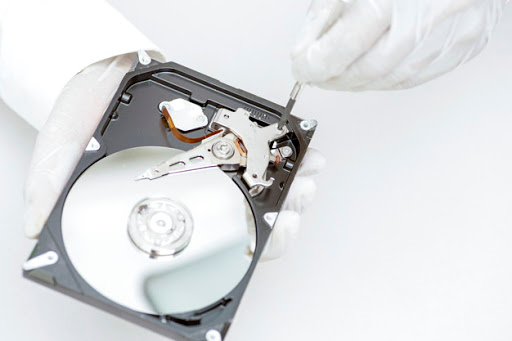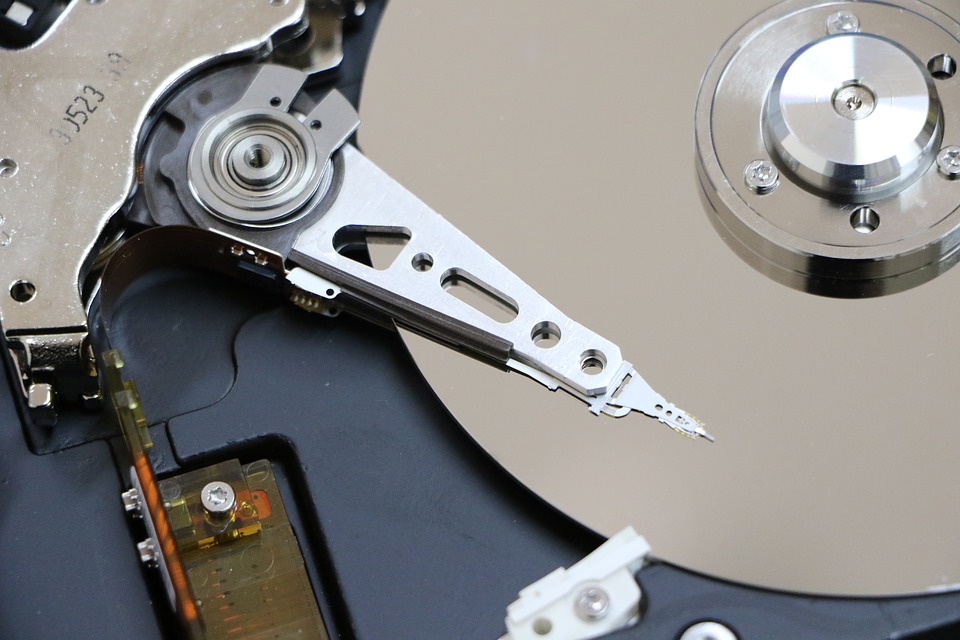 Whether it’s your computer’s internal unit or an external device, hard disk drives allow us to store electronic information. Also known as an HDD, you can store tens of thousands of files on each of these devices, so they can work as the archive of your business. Like other electronic devices, hard disk drives can fail and send any company into a small panic. There are many reasons these devices malfunction and there are several steps you can take to prevent it from happening. And, in case it’s too late, you may still be able to restore your information.
Whether it’s your computer’s internal unit or an external device, hard disk drives allow us to store electronic information. Also known as an HDD, you can store tens of thousands of files on each of these devices, so they can work as the archive of your business. Like other electronic devices, hard disk drives can fail and send any company into a small panic. There are many reasons these devices malfunction and there are several steps you can take to prevent it from happening. And, in case it’s too late, you may still be able to restore your information.
Why Do Hard Disks Fail?
Unlike most computer parts, hard disk drives are mechanical devices. This means that they have moving parts, which affects the way they work. Here are some of the reasons why hard disks may fail:
1. Physical Impact
Each HDD has a mechanical arm that writes information on the storage platter. Bumping, dropping, or otherwise impacting your device while it’s running can cause the parts to move. Which, in turn, can result in mechanical failure and it’s often characterized by a ticking or rustling noise.
2. Electric Malfunctions and Power Failures
Besides physical impacts, hard disk drives can also be affected by electric malfunctions. Power surges and other anomalies can damage the circuits within a HDD and cause a major failure. This may even happen when a device is off but still connected to a power socket or USB slot.
3. Air Intake Filter is Clogged
Your hard disk drive may also malfunction due to a clogged air intake filter. This can cause dust and debris accumulation, affecting the internal mechanism of your storage unit. Make sure you always clean your computer vents and take it for maintenance periodically.
4. Overheating
The electronic circuit board in an HDD can fail if exposed to high temperatures. This can be due to a clogged filter, but you should also maintain a cool room temperature when using your computer. If it’s too hot, your hard disk drive may overheat and crash unexpectedly.
5. Internal Malfunction
Because it has mechanical components, a hard disk drive may simply have an internal malfunction. What’s more, all of these devices have a useable lifespan, so you should always be prepared in case one of your units fails.
How to Prevent Hard Disk Failure
Here are some tips to help you prevent hard disk failure:
1. Reduce Data Load
The more data you have stored on your device, the more stress you’re putting on it. If you have a huge amount of information to back up, you may be better of purchasing several units and spreading the workload among all of them.
2. Monitor Your Device’s Performance
Always keep an eye out for your hard disk drive’s performance. If you notice it starts slowing down, check your computer or external device to see if it has a visible flaw.
3. Prevent Dropping or Bumping It
The worst thing you can do to a hard disk drive is to drop it while it’s running. If it’s writing on the storage platter, this can cause serious damage to your device and make your data inaccessible. Make sure you avoid moving your HDD while it’s on. Preferably, you should use your device on a flat, steady, and solid surface.
4. How to Restore Your Information
Restoring data from a damaged hard disk is not a simple DIY task. If you’re not careful, you may damage the unit beyond access and lose your information for good. The best thing you can do is work with a professional to help restore your files. They can offer you a variety of options and tell you what caused the failure in the first place.
Contact a Reliable IT Firm
If you need to restore information and recover from a failed hard drive, get in touch with us today. You can give us a call at 08 8326 4364 or email us at su*****@dp*********.au .
Author’s Bio
Kym Wallis, the founding director of Higher Ranking has over 15 years of advertising sales, digital strategy, and business development experience. He is currently working as Digital Adviser for Catalyst Computers.

